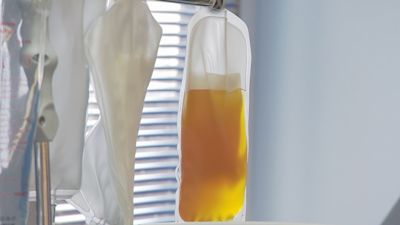Thousands needed to donate blood plasma across the South

Watch the full report by ITV's Nick Smith
People across the South are being asked to donate their blood plasma to help the thousands of people who rely on it for life-saving treatments.
After a break of more than 20 years, the NHS has started sourcing plasma from the UK population again, having been previously reliant on overseas imports.
However, there are concerns that after such a long pause, most of the public are unaware they can be potential donors.
Romeo Russell from Horsham in West Sussex is one of 3000 people in the South East who rely on donations of blood plasma for antibody medicines.
And now, for the first time in his life, he can start receiving treatments sourced in this country.
Maria Russell, Romeo's mother, says the reintroduction of UK plasma donations has taken a lot of pressure off the family.
She says Romeo's immune system was killed off his red blood cells and that the plasma was vital in helping his body fight back.
Maria Russell, Romeo's mother:
A ban on UK plasma donation was imposed in 1998 due to prevalence of the human variant of BSE, commonly known as 'mad cow disease'.
It was lifted earlier this year after the Medicine's Regulator deemed the risk was now negligible.
Donna Blofield, Centre Manager says there is currently a worldwide shortage of plasma.
She says: "There are many safety aspects of giving plasma, as there is with giving blood.
"Further checks are taken before the donation is used. They will do mandatory tests with the donation to make sure that everything is okay."
Donna Blofield, Centre Manager:
How does the plasma donation process work?
The process is a slightly different to when someone gives blood.
While plasma is extracted, the donor's red blood cells are actually returned to them, which means they don't need to be replenished.
Chris Duncalf is a regular blood donor, who is now also donating plasma at the centre in Reading.
He says the process is "very comfortable" and can take about 30 minutes.
He says: "I'm in good health and it feels good to be able to give something back to those who are less fortunate than myself."
The impact of receiving plasma donations can be transformative for those who rely on them.
However, the impact of the pandemic has hit international supplies of plasma. This means UK donors are now being relied upon to make up the shortfall.
Natalie Beeton suffered a severe bout of glandular fever two years ago which left her immune system seriously compromised.
She relies on plasma donations every six weeks to keep her antibody levels topped up.
Natalie Beeton, Plasma recipient:
The NHS is looking for thousands more to step up and make these life-changing contributions.